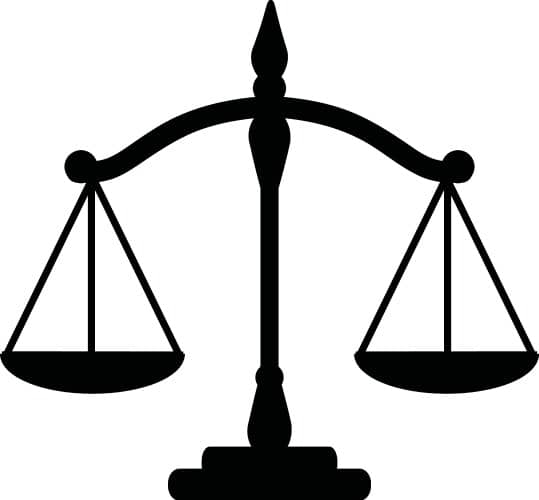society
It’s Time to Decriminalize Defamation in Nigeria

It’s Time to Decriminalize Defamation in Nigeria
In many societies, the boundaries between personal freedom of speech and the right to protect one’s reputation are carefully balanced. In Nigeria, however, defamation — whether slander or libel — remains a criminal offense, with severe consequences for those accused. It is time to reconsider this approach and shift towards decriminalizing defamation, making it a purely civil matter, as it is in many of the world’s major democracies.
The Case for Decriminalization
Criminal defamation laws were initially introduced to protect individuals from malicious harm to their reputation. However, in the modern era, they have often become tools of harassment and oppression, particularly in the hands of powerful individuals. Defamation cases are increasingly used by those in positions of power to silence critics, intimidate journalists, and subjugate less fortunate citizens.
Most developed nations, including the United States, the United Kingdom, and many European countries, have long abolished criminal defamation, opting instead for civil defamation laws. These countries focus on providing avenues for individuals who believe their reputation has been damaged to seek compensation through civil suits, rather than involving the police or criminal justice system.
The shift from criminal to civil defamation has allowed for a more balanced and equitable approach to handling reputation-related disputes. It ensures that individuals are not subjected to arbitrary arrests, prolonged detention, or unfair punishment for matters that could be resolved through civil litigation.
Abuse of Defamation Laws in Nigeria
In Nigeria, criminal defamation has been increasingly weaponized by those with influence and resources, particularly public figures and wealthy individuals. The cases of Erisco and Chioma, Burna Boy and Speed Darlington, and Afe Babalola and Dele Farotimi are just a few examples of how the criminal defamation law has been allegedly misused to silence individuals and suppress free expression.
In some cases, complainants have filed petitions, often accusing someone of making a false or damaging statement. The response, instead of being a simple legal dispute, involves the police swooping in, arresting the accused, and whisking them away to distant locations. In many instances, these individuals are detained for weeks, sometimes months, without formal charges being brought against them. The sheer inconvenience and trauma caused by these actions are disproportionate to the alleged offense.
This practice has led to an alarming trend where those in power allegedly manipulate the legal system to punish those who dare to question or criticize them. Defamation, in these cases, becomes a tool not for justice, but for maintaining control and suppressing free speech.
The Role of the Police
One of the most troubling aspects of criminal defamation is the involvement of the police in what should essentially be a private dispute. Defamation is, at its core, a disagreement about reputation, a civil matter between two parties. The idea that the police should be involved in arresting individuals over “he said, she said” disputes is deeply problematic.
When the police are called upon to investigate defamation claims, it opens the door to manipulation and potential abuse of power. Arresting someone over an alleged defamatory statement, often based on little more than the complainant’s word, is an unjust use of law enforcement resources. The police, who should be focused on public safety and crime prevention, are instead drawn into disputes that are better suited for civil courts.
It is essential to understand that defamation, like other civil matters, can be addressed through appropriate legal channels without the need for criminal intervention. If someone feels they have been defamed, they should have the right to sue for damages in a court of law. There is no need to escalate the matter into a criminal issue, nor should the police be involved in what is essentially a civil grievance.
A Call for Legal Reform
To move forward, Nigeria must revisit its stance on defamation and adopt a system that encourages civil litigation rather than criminal prosecution. This would align the country with international standards, reduce the abuse of power by the elite, and safeguard individuals’ rights to free speech and expression.
The time has come to shift the focus from punitive measures to restorative justice, where victims of defamation can seek compensation and where the police are not burdened with trivial civil matters. Such a reform would not only make the legal system more just and fair but also restore the integrity of our justice system, ensuring that it serves the public rather than protecting the interests of the powerful few.
society
HIGH CHIEF CHETACHI NWOGA-ECTON HONOURED BY IMO STATE HAUSA, IGBO AND YORUBA COMMUNITIES, EMPOWERS THE UNDERPRIVILEGED WITH CASH GIFTS AND TOOLS

*HIGH CHIEF CHETACHI NWOGA-ECTON HONOURED BY IMO STATE HAUSA, IGBO AND YORUBA COMMUNITIES, EMPOWERS THE UNDERPRIVILEGED WITH CASH GIFTS AND TOOLS
An atmosphere of joy and celebration filled Owerri Municipal as High Chief Chetachi NWOGA-ECTON — Adaure, Ada Imo and Uwar Marayu of the Northern Community in Imo State — led her team from Abuja to Owerri for a humanitarian outreach empowerment programme tagged Mission of Mercy.
The outreach, organized under the auspices of the When In Need Foundation and the All Life Matters Humanitarian Foundation, saw the distribution of cash gifts and skill acquisition equipment worth millions of naira to underprivileged and vulnerable members of the Igbo, Hausa and Yoruba communities in Owerri Municipal.
The event was hosted by HRH Alhaji Baba Suleiman, Sarkin Hausawa of the Northern Community in Imo State. He was joined by the Chairman of the Imo State Council of Traditional Rulers and Chairman of the South East Council of Traditional Rulers, HRM Eze Dr. E. C. Okeke, CFR, who was represented by HRH Eze Engr. Fredrick Nwachukwu, Deputy Chairman of the Owerri Zone Council of Traditional Rulers. Also present was the host traditional ruler, HRH Eze Austine Possible Uche of Owerri Municipal.
Other royal fathers in attendance included HRH Eze Dr. Clinton Uboegbulam of Umuororonjo, HRH Eze Peter Njemanze of Amawom, HRH Eze Kelvin Tochukwu Ihebom of Umuihugba-Umuodu Communities, and HRH Alhaji Oba Musibau Aladeji, the Oba of the Yoruba Community in Imo State. The Chief Imam of Owerri Central Mosque, Alhaji Barr. Suleiman Njoku, was also present.
Dignitaries at the occasion included Alhaji Ibrahim Saley, former Secretary of the Imo State Muslim Pilgrimage Board; Alhaji Hassan Babidi, former Special Adviser on Northern Affairs under Governor Emeka Ihedioha; Alhaji Ibrahim Suleiman Ibrahim, Special Adviser to Governor Hope Uzodimma on Northern Affairs; and Hajiya Fatima Hamza, Special Adviser on Northern Women Affairs, Gender and the Vulnerable, among others.
A special appearance was made by Yahaya Moh’d Kyabo Fagge, FCIML (USA), Dan Darman Jiwa Wakilin Sarkin of Jiwa Ward in the Federal Capital Territory, Abuja. He offered prayers and words of encouragement to High Chief Chetachi NWOGA-ECTON, praising her extensive humanitarian services which, he noted, have impacted many communities across Northern Nigeria and beyond. He further described her as an adopted daughter of his emirate, acknowledging her significant contributions to the Jiwa community.
Speaking through his representative, HRM Eze Dr. E. C. Okeke, CFR commended the philanthropist’s numerous good works, noting that they justified the traditional recognition conferred upon her by the Imo State Council of Traditional Rulers.
In his goodwill message, Alhaji Ibrahim Saley cited verses from the Qur’an, highlighting examples of individuals who used their wealth to uplift the poor and were rewarded by Allah. He encouraged her to remain steadfast in her humanitarian service.
While distributing the items and cash gifts, High Chief Chetachi NWOGA-ECTON expressed deep appreciation to the Hausa, Igbo and Yoruba communities for honouring her with the traditional title “Uwar Marayu,” meaning “Mother of Orphans.”
She thanked HRM Eze Dr. E. C. Okeke, CFR, whom she described as a father figure, as well as other traditional rulers who graced the occasion.
She reflected on her humble beginnings, recalling a personal vow she made to God while struggling to survive as a street hawker — that if blessed with wealth, she would dedicate her resources to serving humanity. She expressed gratitude to God that the vision has become a reality through programmes such as the Mission of Mercy.
In his closing remarks, the host, HRH Alhaji Baba Suleiman, appreciated High Chief Chetachi NWOGA-ECTON for her generosity towards the less privileged in his community. He recounted how, after consultations with his cabinet, the council resolved to honour her with the title “Uwar Marayu” in recognition of her selfless service.
According to him, in appreciation of the honour bestowed upon her, the philanthropist provided financial support running into millions of naira, which was used to procure skill acquisition equipment and grants for traders and vulnerable individuals.
Items distributed included sewing machines, barbing kits, salon tools, and wheelbarrows. Beneficiaries also received food items such as 50 kg bags of rice and garri, cartons of noodles, loaves of bread, and other essential supplies.
The Mission of Mercy outreach not only strengthened unity among the Hausa, Igbo and Yoruba communities in Imo State but also reaffirmed High Chief Chetachi NWOGA-ECTON’s commitment to humanitarian service and community development.
society
Only Fools Assume They Can Fight the State Like El-Rufai Did

Only Fools Assume They Can Fight the State Like El-Rufai Did — Ope Banwo
Public affairs commentator Ope Banwo has described as “strategic folly” the assumption that a former political office holder can openly confront the Nigerian state without consequences.
Banwo made the remarks while analysing the recent detention of former Kaduna State governor Nasir El-Rufai, which he said underscores the imbalance between individual ambition and institutional power.
“Only fools believe they can challenge the state the way El-Rufai did and continue life as usual,” Banwo stated. “The Nigerian state is not a debating club.”
He noted that El-Rufai repeatedly made grave allegations against government institutions on national platforms, including claims of conspiracies and surveillance, without publicly providing evidence. According to Banwo, such statements, whether true or not, inevitably provoke a response from authorities determined to maintain control.
Banwo explained that when a former official challenges state authority, it is often interpreted not as dissent but as defiance. “The state reacts to defiance, not arguments,” he said.
He further argued that El-Rufai appeared to overestimate his political backing, assuming that his past influence would shield him from institutional action. “That assumption collapsed the moment power called his bluff,” Banwo added.
According to him, the involvement of agencies such as the Economic and Financial Crimes Commission and the Department of State Services illustrates how swiftly the machinery of state can move once a decision is made.
Banwo also highlighted the public’s muted reaction as a crucial lesson. “There were no mass protests. That silence shows the difference between perceived influence and real leverage,” he said.
He stressed that political power in Nigeria is sustained by active control of institutions, not by reputation. “Once you lose the levers, your bravado becomes a liability,” Banwo noted.
He concluded that El-Rufai’s experience should caution other former power brokers against mistaking visibility for authority. “Fighting the state without power is not courage; it is miscalculation,” he said.
society
GENERAL BULAMA BIU APPLAUDS SUCCESSFUL APC CONGRESSES, URGES NEW EXECUTIVES TO FOCUS ON GOOD GOVERNANCE

GENERAL BULAMA BIU APPLAUDS SUCCESSFUL APC CONGRESSES, URGES NEW EXECUTIVES TO FOCUS ON GOOD GOVERNANCE
Major General Abdulmalik Bulama Biu (Rtd), mni, Sarkin Yakin Biu, has extended his heartfelt congratulations to the newly elected Ward and Local Government Executives of the All Progressives Congress (APC) following the successful conduct of the party congresses across Borno State.
In a statement he personally issued to mark this significant milestone, General Biu commended the peaceful and well-organized nature of the congresses, highlighting them as a testament to the unity, maturity, and democratic spirit that characterize the APC. He praised the leadership, stakeholders, and dedicated members of the party for their commitment and discipline, which contributed to the smooth and credible outcome of the elections.
Addressing the newly elected executives, Biu emphasized that their victory is not just an honor, but a mandate for greater service, responsibility, and sacrifice. “Our party faithful look up to you to help shape leadership choices that are credible, experienced, and deeply committed to delivering the dividends of democracy to our people,” he stated, urging them to work sincerely and fairly to strengthen the party at the grassroots level.
He called upon the new leaders to promote unity among members and support good governance to ensure the continued progress of Borno State and the nation as a whole.
In closing, Major General Biu assured the new executives of his unwavering support and extended his best wishes for their tenure, wishing everyone a prosperous and blessed Ramadan.
-

 celebrity radar - gossips6 months ago
celebrity radar - gossips6 months agoWhy Babangida’s Hilltop Home Became Nigeria’s Political “Mecca”
-

 society6 months ago
society6 months agoPower is a Loan, Not a Possession: The Sacred Duty of Planting People
-

 society5 months ago
society5 months agoReligion: Africa’s Oldest Weapon of Enslavement and the Forgotten Truth
-

 news6 months ago
news6 months agoTHE APPOINTMENT OF WASIU AYINDE BY THE FEDERAL GOVERNMENT AS AN AMBASSADOR SOUNDS EMBARRASSING






